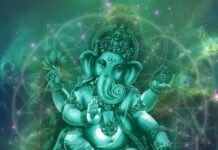India abstained on the last UNGA resolution which suspended Russia from the Human Rights Council. Explaining India’s vote, the Indian ambassador strongly condemned civilian killings in Bucha while reiterating India’s unwavering commitment to Human Rights. India’s abstention should not be construed as supporting Russia’s invasion of Ukraine.
By Arvind Gupta
Consistent with its advocacy of ending violence, not violating the sovereignty and territorial integrity of countries, and adhering to the principles of UN Charter, India has abstained on all the UN resolutions on the Ukraine situation so far. The key point of Indian approach is that violence should end and the concerned parties should resolve their differences through dialogue and diplomacy. Naming and shaming one party (i.e Russia) will not help solve the problems.
Reasons why India cannot criticise Russia
There are strong reasons why India cannot openly criticise Russia as the Western countries would like it to do. First, Russia has been a friend that has stood with India over the decades on critical issues be it on Kashmir, or during the Bangladesh liberation war in 1971. The former Soviet Union had repeatedly exercised veto at the UNSC on the Kashmir question in the past. The USSR’s political, economic and technical help to India in its early years has been invaluable.
Second, Indian armed forces are significant users of Russian military equipment and spare parts to this day. The two countries have several joint ongoing military projects, of which Brahmos supersonic cruise missiles, which India is going to export to the Philippines, is one. Although India has diversified the procurement of weapons and arms from the US, France and Israel, the Russian equipment in use cannot be replaced for decades.
For India, the current conflict is not of its making. It is already affecting the Indian economy adversely as global energy and commodity prices rise. The threat of the Ukraine conflict morphing into a devastating global war in which nuclear weapons might be used can no longer be dismissed. Taking sides among parties will only harden the divisions. Sanctions on Russia are of questionable utility. Prime Minister Modi has said that India stands on the side of peace.
Do not divert attention from China
Arguably, India, caught between two opposing sides with whom it has strategic ties, faces an unprecedented foreign policy challenge. So far it has stuck to its national interest coupled with its advocacy for the end of senseless violence through diplomacy and dialogue. Reading India’s numerous abstentions as siding with Russia will be a completely wrong interpretation of India’s stand and may damage the close ties between India and he Western countries.
The Western actions have been inconsistent. The European countries continue to buy Russian gas while other countries are being told not buy Russin oil. Several times in the past, Western countries have violated with impunity the sovereignty and territorial integrity of many nations. The Iraqi and the Libyan examples come to mind. No one comes out smelling of roses in this conflict. The better approach would be to raise collective voice in favour of an early end to violence and the restoration of peace and stability. That is what India is trying to do.
Unfortunately, the Ukrainian crisis is diverting the attention of the West from Indo-Pacific to Europe. The Quad countries should remain focused on China. They should realise that India, which is taking a strong stand in favour of global peace, can play a potentially useful role in the present crisis. Pressurising India in the Quad on the Ukrainian issue should be eschewed as it will not serve the lofty goals of Quad. India’s position on the Ukraine crisis is nuanced and constructive. Th forthcoming ‘2 plus 2’ dialogue between India and US will help clarify matters and further strengthen the strategic partnership between the two countries.
This article first appeared in www.vifindia.org and it belongs to them.








